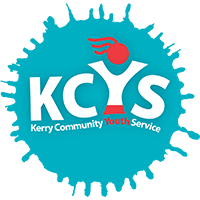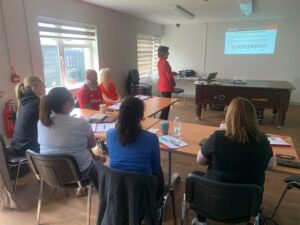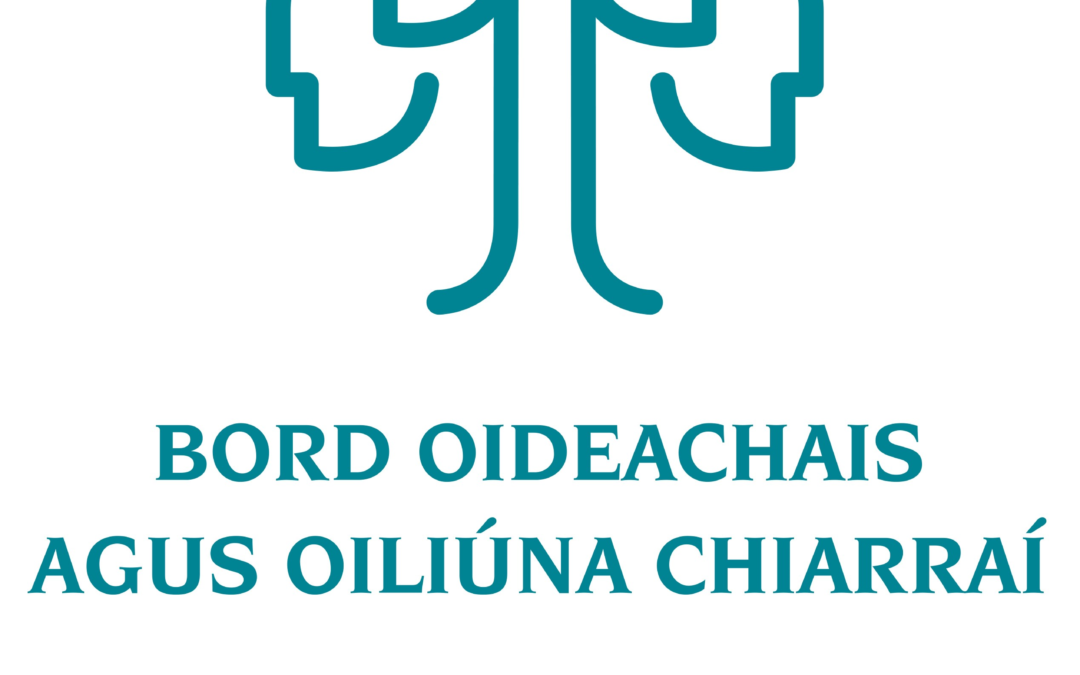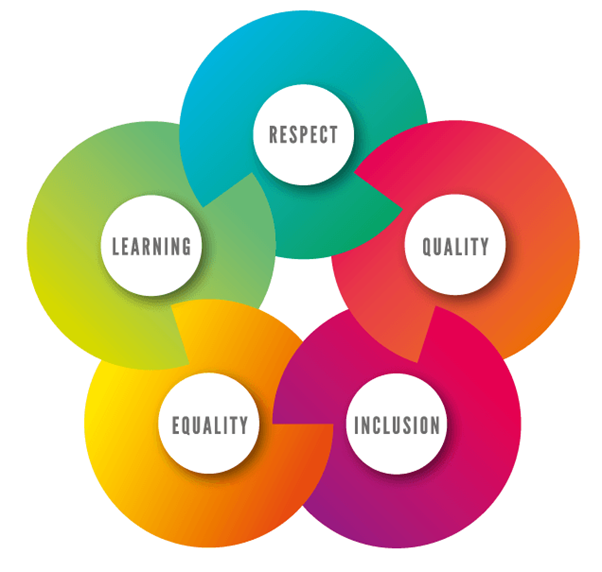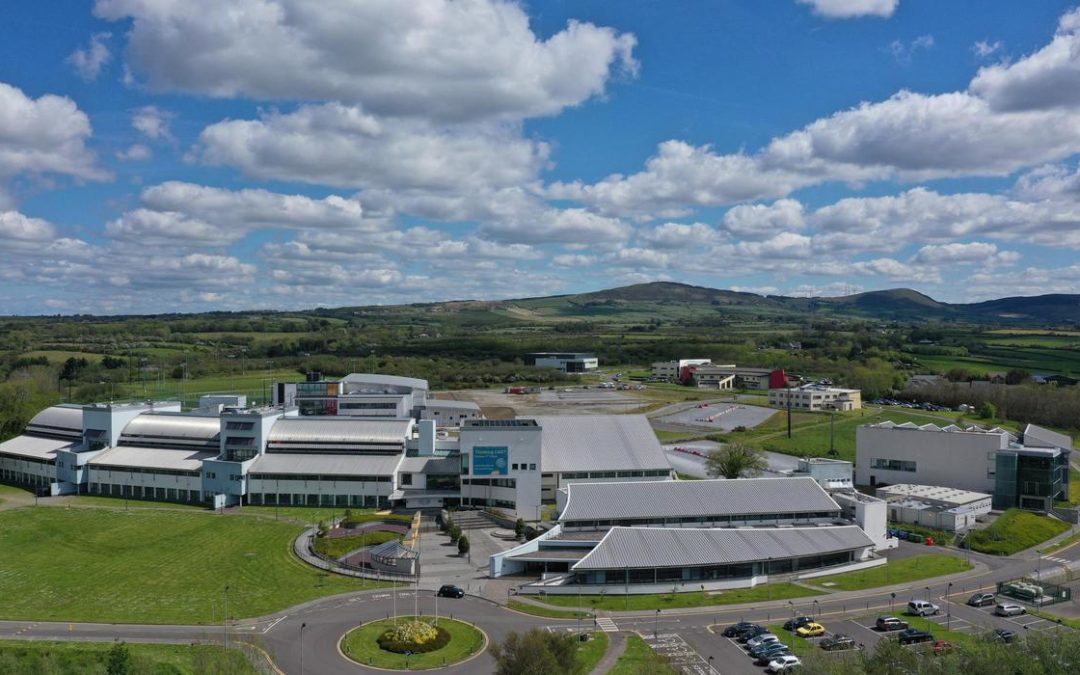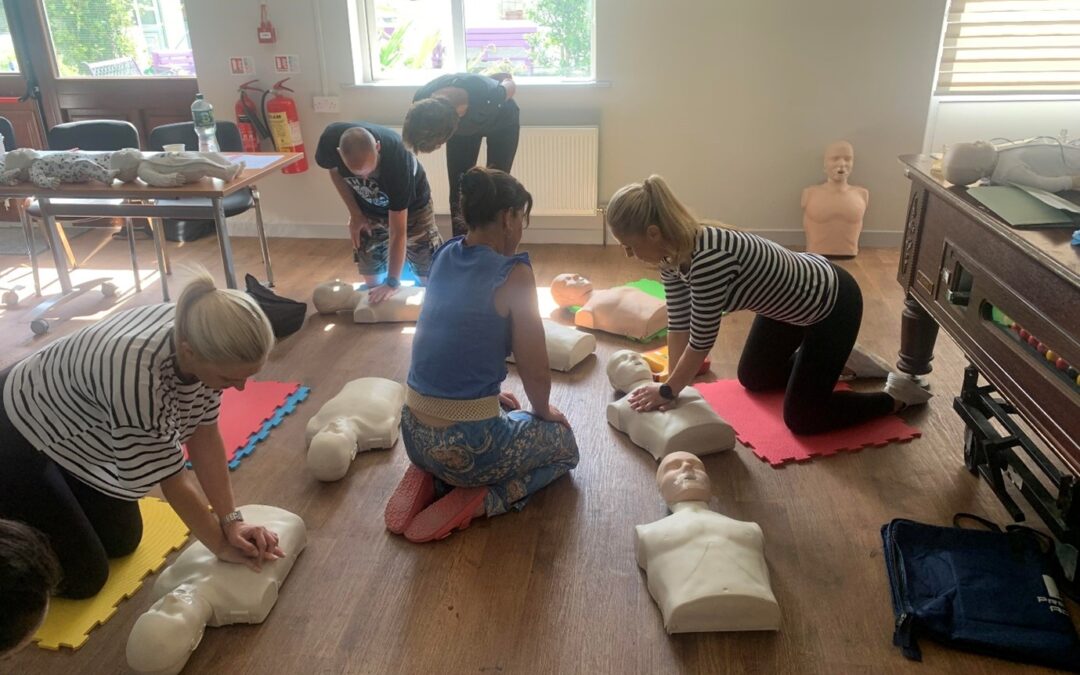
Cróige FAR & Defib
The Croige team recently completed a First Aid Responder Training, where we gained a wealth of knowledge! Here are some key takeaways we’re excited to share with you: 🚑🩹
👷 Safety First: When providing first aid, always remember to assess the environment and ensure your own safety first before helping others. Your safety is paramount to effectively assisting someone in need.
📦 First Aid Kit: Always ensure you have access to a fully stocked first aid kit. Being prepared can make all the difference in an emergency.
🔌 Defibrillation (AED) & CPR: Did you know that using a Defibrillator (AED) within the first few minutes of a cardiac arrest can dramatically increase survival rates? Combined with effective CPR, we can greatly improve the chances of recovery. Familiarize yourself with the location of the nearest public access AED by logging onto Rescue.ie and using the AED locator function.
🔥 Burns: Quick and proper treatment of burns is vital. Submerge the burn in cool water (tepid water for a child) for at least 10 minutes to reduce pain and prevent further damage. Don’t use running water or ice directly on the burned area as that can cause more damage. Cover the burn with a clean, non-stick dressing.
💔 Breaks and Fractures: immobilize the injured area and keep it stable until professional medical help arrives to prevent further injury. Knowing how to handle fractures can make a big difference in the recovery process.
Finally we would like to extend a heartfelt thank you to our incredible instructor, Sheila Nolan. Over the course of our 3-day training, Sheila’s vast knowledge and engaging teaching style made for an informative and enjoyable training. We couldn’t have asked for a better guide. Thank you, Sheila! 🌟
🚑 Exciting News! 🚑
As a result of our recent First Aid Responder training, we’ve decided to take action and come together to fundraise for a much-needed defibrillator for our Killarney Centre. This initiative is part of an integration program within KDYS aimed at encouraging young people to actively engage with their community.
We are thrilled to involve our young people in this important cause and are looking forward to organizing various fundraising activities to make this happen. Together, we can enhance the safety of our community and empower our youth to make a real difference!
Why is a defibrillator so important? A defibrillator can be a lifesaver during cardiac emergencies, providing a crucial intervention that can significantly increase survival rates. Having one on hand at our centre will ensure we are prepared to respond swiftly and effectively in critical situations.
Stay tuned for more updates on how you can get involved and support this initiative. Let’s come together to equip our centre with this vital lifesaving device! ❤️
